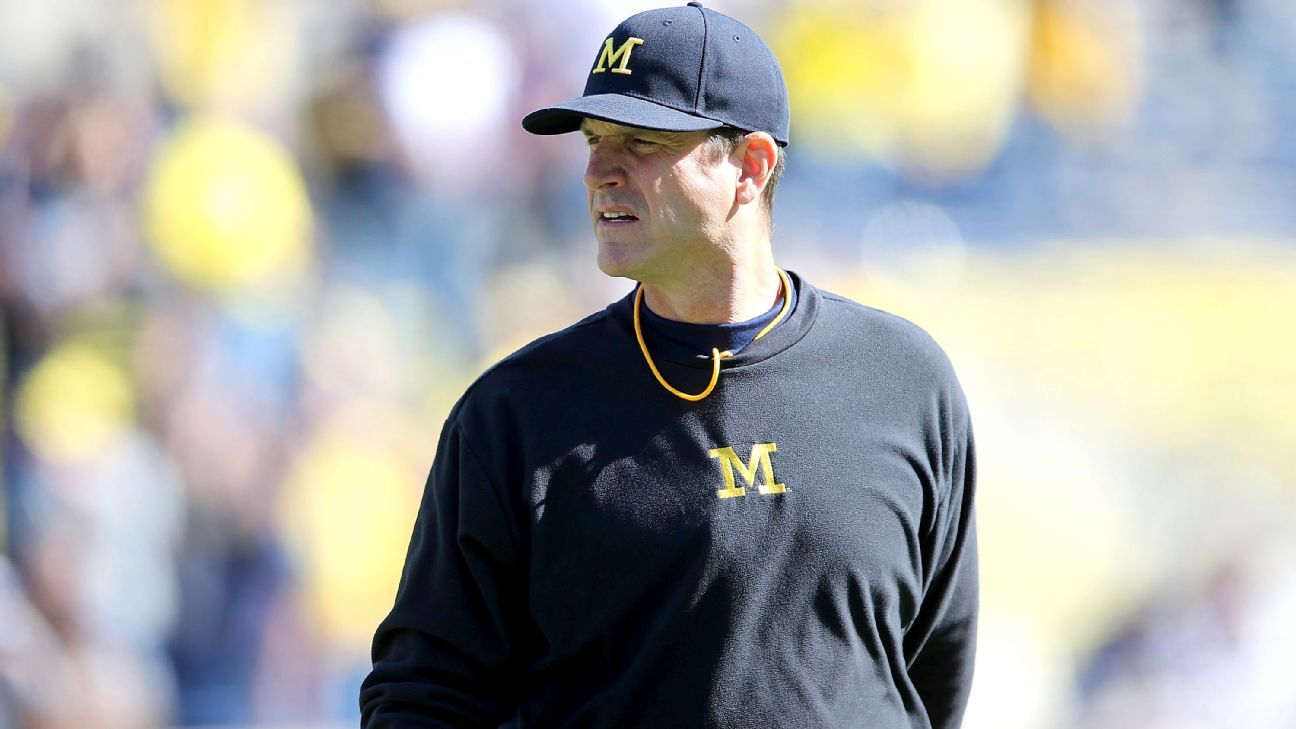
CHICAGO -- Michigan coach Jim Harbaugh supports players being able to transfer once without sitting out a year but wants those seeking immediate eligibility to be truthful about their reasons in seeking waivers from the NCAA, especially regarding mental health.
Speaking Friday at Big Ten media days, Harbaugh said he would keep immediate eligibility for graduate transfers, allow undergraduates to transfer once without penalty but require a year of no competition for undergraduates transferring for a second time. Football is among five NCAA Division I sports without a one-time transfer exemption.
"It would be good to just have a clear, concise [policy], where everybody understands what the ramifications are," Harbaugh said. "I think that would be a fair way to proceed."
Harbaugh also told ESPNU Big Ten radio on Friday that he was concerned some players seeking immediate eligibility cite mental health issues that don't exist but improve their chances of receiving waivers from the NCAA. Harbaugh noted that he cares about mental health, but he said he thinks it has become an effective way for players to get waivers approved.
"Down the road, I don't see that helping them if that's not a legitimate thing," he said. "But nobody would know. But what are you going to say? Ten years down the road, 'I just had to say what I had to say?' You're putting them in a position that's unfair, not right. You're saying it just to say it. ... That's not something we should be promoting at the college level. Telling the truth matters, especially at a college."
Harbaugh did not reference any specific players and said he had no involvement in ongoing cases such as those of former Michigan players James Hudson and Oliver Martin, who are requesting immediate-eligibility waivers at Cincinnati and Iowa, respectively. Hudson cited mental health issues he experienced at Michigan in his waiver request, which was denied.
Hudson, who is appealing the NCAA's decision, responded to a tweet about Harbaugh's mental health comments Friday, tweeting, "You cannot be serious."
Harbaugh said his main point in raising the mental health issue, however, was that student-athletes shouldn't have to specify the reason they want to transfer.
"I care very deeply about mental health, I'm not saying everybody's lying about that," Harbaugh said. "... Just saying, 'OK, this is America. You started at this school, you didn't like it and for whatever the reason is, you're freely allowed to transfer to any other school like any other human being would have a right to do.' That's really the bottom line."















 Phone: (800) 737. 6040
Phone: (800) 737. 6040 Fax: (800) 825 5558
Fax: (800) 825 5558 Website:
Website:  Email:
Email: 






